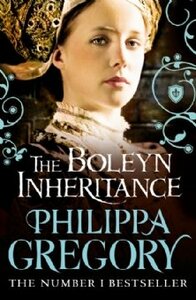Take a photo of a barcode or cover
medium-paced
Plot or Character Driven:
Character
Strong character development:
Yes
Loveable characters:
Complicated
Diverse cast of characters:
No
Flaws of characters a main focus:
Yes
medium-paced
sad
tense
medium-paced
Plot or Character Driven:
Plot
Strong character development:
No
Loveable characters:
No
Diverse cast of characters:
No
Flaws of characters a main focus:
Yes
The book takes readers back to historical England, immersing them in the tumultuous court of King Henry VIII. The novel follows the intertwining stories of three remarkable women: Anne of Cleves, Katherine Howard, and Jane Rochford. Each woman grapples with the treacherous world of politics, intrigue, and power, navigating the perils of the Tudor court.
Anne of Cleves, a young woman escaping a troubled past, finds herself thrust into a marriage with King Henry VIII. With language barriers and a hostile environment, she must navigate a court where her predecessors have met tragic fates. Gregory skillfully captures Anne's resilience as she fights for her life and survival in the face of an unpredictable and vengeful king.
Katherine Howard, a captivating beauty, captures the attention of King Henry VIII and becomes his queen. Unaware of the dangers that surround her, she grapples with her own desires, love, and the dark shadow cast by the king's previous actions. Gregory paints a vivid picture of Katherine's naivety and her unwitting entanglement in the deadly machinations of courtly politics.
Jane Rochford, known for her involvement in the downfall of her husband and sister-in-law, serves as a trusted confidante to threatened queens and a loyal spy for her powerful uncle, the Duke of Norfolk. Gregory portrays Jane as a cunning survivor, navigating the treacherous court of King Henry VIII, and leaving a lasting legacy of malice and twisted lust.
The book skillfully weaves together romance, family drama, and historical events, offering readers an immersive experience of Tudor England. Gregory seamlessly combines well-researched historical details with engaging storytelling, providing readers with a captivating blend of intrigue and romance. While some parts of the story may move slowly or feel repetitive, Gregory's ability to convey the intricacies of changing alliances and the political landscape of the time is commendable. The author brings history to life, shedding light on the lives of these women who were merely puppets in the hands of a capricious king.
This novel is a rich tapestry of intrigue, backstabbing, political maneuvering, and the ever-present threat of beheading. Gregory expertly presents history in an entertaining yet informative manner, making it accessible even to readers with limited knowledge of the Tudor period. The author's ability to combine historical accuracy with compelling storytelling creates a captivating narrative that keeps readers engaged from beginning to end.
Anne of Cleves, a young woman escaping a troubled past, finds herself thrust into a marriage with King Henry VIII. With language barriers and a hostile environment, she must navigate a court where her predecessors have met tragic fates. Gregory skillfully captures Anne's resilience as she fights for her life and survival in the face of an unpredictable and vengeful king.
Katherine Howard, a captivating beauty, captures the attention of King Henry VIII and becomes his queen. Unaware of the dangers that surround her, she grapples with her own desires, love, and the dark shadow cast by the king's previous actions. Gregory paints a vivid picture of Katherine's naivety and her unwitting entanglement in the deadly machinations of courtly politics.
Jane Rochford, known for her involvement in the downfall of her husband and sister-in-law, serves as a trusted confidante to threatened queens and a loyal spy for her powerful uncle, the Duke of Norfolk. Gregory portrays Jane as a cunning survivor, navigating the treacherous court of King Henry VIII, and leaving a lasting legacy of malice and twisted lust.
The book skillfully weaves together romance, family drama, and historical events, offering readers an immersive experience of Tudor England. Gregory seamlessly combines well-researched historical details with engaging storytelling, providing readers with a captivating blend of intrigue and romance. While some parts of the story may move slowly or feel repetitive, Gregory's ability to convey the intricacies of changing alliances and the political landscape of the time is commendable. The author brings history to life, shedding light on the lives of these women who were merely puppets in the hands of a capricious king.
This novel is a rich tapestry of intrigue, backstabbing, political maneuvering, and the ever-present threat of beheading. Gregory expertly presents history in an entertaining yet informative manner, making it accessible even to readers with limited knowledge of the Tudor period. The author's ability to combine historical accuracy with compelling storytelling creates a captivating narrative that keeps readers engaged from beginning to end.
dark
sad
tense
medium-paced
Plot or Character Driven:
Character
Strong character development:
Complicated
Loveable characters:
Complicated
Flaws of characters a main focus:
Complicated
I was ready to give it five stars being as I truly enjoyed the book, but that weird scene with Katherine and Thomas was absolutely unnecessary and spoils the entire book.
I don't even believe they got that far, of course it's historical fiction and with limited information you're expected to add some details, but that was awful.
Second complaint being the fact that as far as I have been told and know, Anne of Cleves actually did try to remarry Henry before Katherine Parr married him. I originally was enjoying the book because it seemed that it wasn't leaning too heavily to one side or the other with Katherine and Anne, but it started leaning too heavily to "Anne being alone with her own castle = empowerment and freedom!".
Last complaint was nearing the end it started getting repetitive on some points like Anne and her castle being alone and "Henry's a monster" seeming to be the only thing she adds once they're divorced (not wrong, but repeating something too much starts feeling like beating a dead horse).
Jane's denial of how Anne and George went down in hindsight might have also been a bit repetitive, hard to say since that is a major factor of her life and what I would think would've led to her losing her mind instead of this idea of pretending madness.
I liked the three different perspectives though, it made the story interesting the way it still flows, but feels like you get important parts from the person most relative.There's one point where Katherine's like "how else did they think I'd turn out" with reference to her childhood and that felt like a good point semi relevant today.
Katherine's character wasn't bad, which is what I read the book for (her being my favorite along with Katherine of Aragon) so I appreciate that and the "Katherine's a child" being used in multiple ways: 1) her ignorance and world view and 2) her relationship with men. I think stayed mostly in the middle like I said not too far one way or other that made it enjoyable and yes I laughed at a few dumb moments from her especially the "King knows all our thoughts since he's God" moment.
I don't even believe they got that far, of course it's historical fiction and with limited information you're expected to add some details, but that was awful.
Second complaint being the fact that as far as I have been told and know, Anne of Cleves actually did try to remarry Henry before Katherine Parr married him. I originally was enjoying the book because it seemed that it wasn't leaning too heavily to one side or the other with Katherine and Anne, but it started leaning too heavily to "Anne being alone with her own castle = empowerment and freedom!".
Last complaint was nearing the end it started getting repetitive on some points like Anne and her castle being alone and "Henry's a monster" seeming to be the only thing she adds once they're divorced (not wrong, but repeating something too much starts feeling like beating a dead horse).
Jane's denial of how Anne and George went down in hindsight might have also been a bit repetitive, hard to say since that is a major factor of her life and what I would think would've led to her losing her mind instead of this idea of pretending madness.
I liked the three different perspectives though, it made the story interesting the way it still flows, but feels like you get important parts from the person most relative.
Katherine's character wasn't bad, which is what I read the book for (her being my favorite along with Katherine of Aragon) so I appreciate that and the "Katherine's a child" being used in multiple ways: 1) her ignorance and world view and 2) her relationship with men. I think stayed mostly in the middle like I said not too far one way or other that made it enjoyable and yes I laughed at a few dumb moments from her especially the "King knows all our thoughts since he's God" moment.
challenging
emotional
hopeful
reflective
sad
tense
slow-paced
Plot or Character Driven:
Character
Strong character development:
Complicated
Loveable characters:
No
Diverse cast of characters:
Complicated
Flaws of characters a main focus:
Yes
medium-paced
Plot or Character Driven:
A mix
Strong character development:
Yes
Loveable characters:
Yes
If you are into character development then this book is for you. I did find it interesting the way the author pointed to the Boleyn inheritance throughout the book as objects such as land, money, jewels... but in the end the inheritance is actually death on the scaffold, like the Boleyn's before her.
dark
emotional
sad
medium-paced
Plot or Character Driven:
A mix
Strong character development:
Yes
Loveable characters:
Complicated
Diverse cast of characters:
No
Flaws of characters a main focus:
Yes
This was neither the most historically accurate nor the best written book about the Tudors I’ve read.
While I have nothing against longer books if they’re worth it, this one really could have been improved by cutting out a lot of the repetitive internal monologues.
This book is what I’d call “just ok.”
While I have nothing against longer books if they’re worth it, this one really could have been improved by cutting out a lot of the repetitive internal monologues.
This book is what I’d call “just ok.”
sad
tense
medium-paced
Plot or Character Driven:
Plot
Strong character development:
Yes
Loveable characters:
Complicated
Diverse cast of characters:
No
Flaws of characters a main focus:
No



